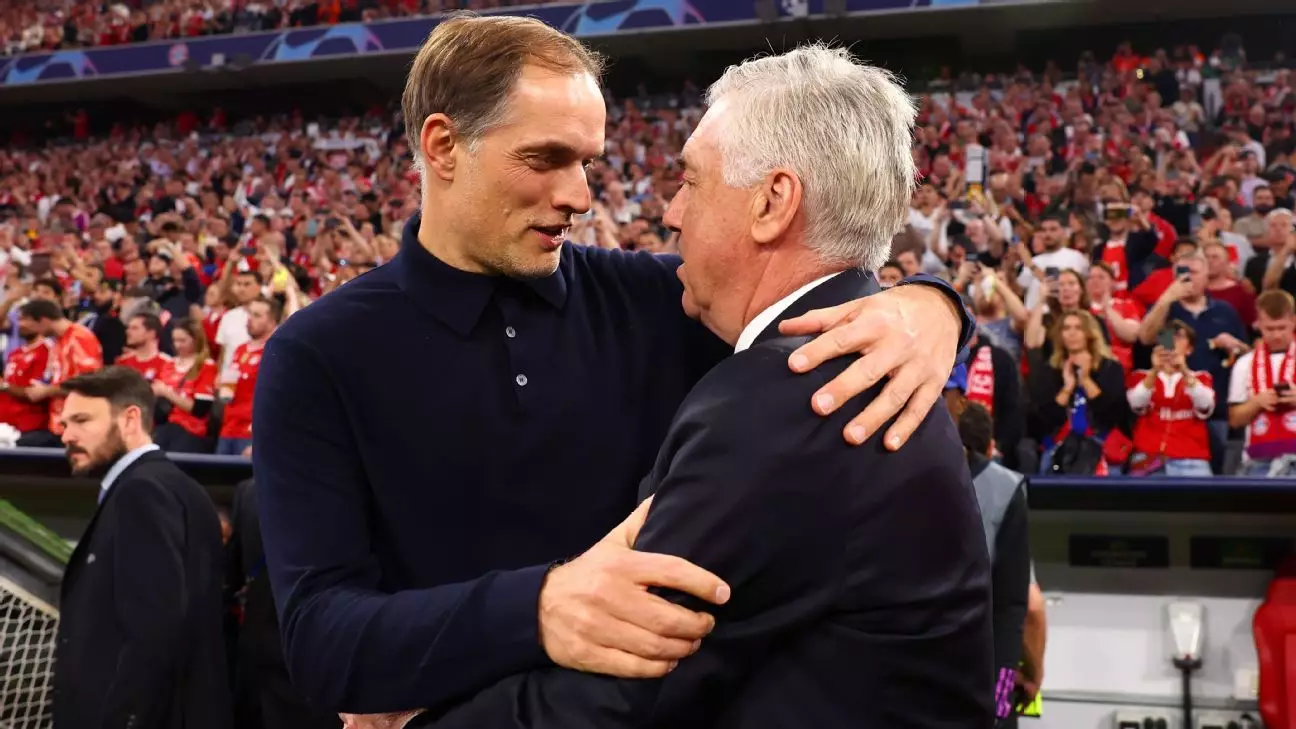The upcoming Champions League semi-final match between Real Madrid and Bayern Munich at Wembley will not only be a showcase of incredible team tactics and skilled players but also a clash of two polar opposite coaches in Carlo Ancelotti and Thomas Tuchel. These coaches differ greatly in their touchline behavior, communication style, and overall team management approach. While Ancelotti embodies the concept of “Quiet Leadership,” Tuchel’s coaching style is described as fury in a bottle. This stark difference in leadership styles has been crucial in shaping the performance of their respective teams throughout the season and in reaching this critical juncture of the Champions League.
Carlo Ancelotti, known for his calm and measured demeanor on the touchline, emphasizes the importance of building trust and making decisions coolly in his approach to leadership. In his book “Quiet Leadership: Winning Hearts and Minds and Matches,” Ancelotti highlights the significance of engaging talent in problem-solving and fostering a supportive environment. On the other hand, Thomas Tuchel’s coaching style is characterized by intense passion and sometimes abrasive communication tactics. His focus on tactical brilliance and resourcefulness sets him apart as a football strategist, but his aggressive touchline behavior and public criticism of players have raised concerns about his leadership approach.
The dynamics of communication between coaches and players in elite football can have a significant impact on team performance and morale. While some players may respond positively to Tuchel’s direct and demanding coaching style, others may feel demotivated or alienated by his harsh criticism. The effectiveness of a coach’s communication approach lies in striking the right balance between constructive feedback and motivational support. Ancelotti’s emphasis on quiet strength and implicit authority resonates with the idea that respect and trust are key elements of effective leadership in football.
Thomas Tuchel’s public criticism of players, such as defender Kim Min-jae, has drawn attention to his approach towards player management and accountability. While holding players accountable for their performance is essential, the manner in which feedback is delivered can have a lasting impact on team dynamics and individual confidence. Tuchel’s intense coaching style may yield results in terms of tactical execution, but it also runs the risk of creating a culture of fear and insecurity within the team.
As Real Madrid and Bayern Munich prepare to face off in the Champions League semi-final, the importance of effective leadership in driving success cannot be overstated. While Tuchel’s tactical acumen and intensity may give Bayern an edge on the field, Ancelotti’s track record of winning multiple league titles and trophies across Europe speaks to the power of quiet leadership and player empowerment. The outcome of the match will not only be determined by tactical brilliance but also by the ability of the coaches to inspire and motivate their players to perform at their best.
The clash between Real Madrid and Bayern Munich is not only a battle of tactics and skill but also a test of leadership styles and approaches. While Thomas Tuchel’s intensity and tactical brilliance may be formidable, Carlo Ancelotti’s quiet strength and focus on player empowerment could prove to be the winning formula. As football fans eagerly await the outcome of this high-stakes match, it remains to be seen which coaching philosophy will prevail on the road to Champions League glory.
